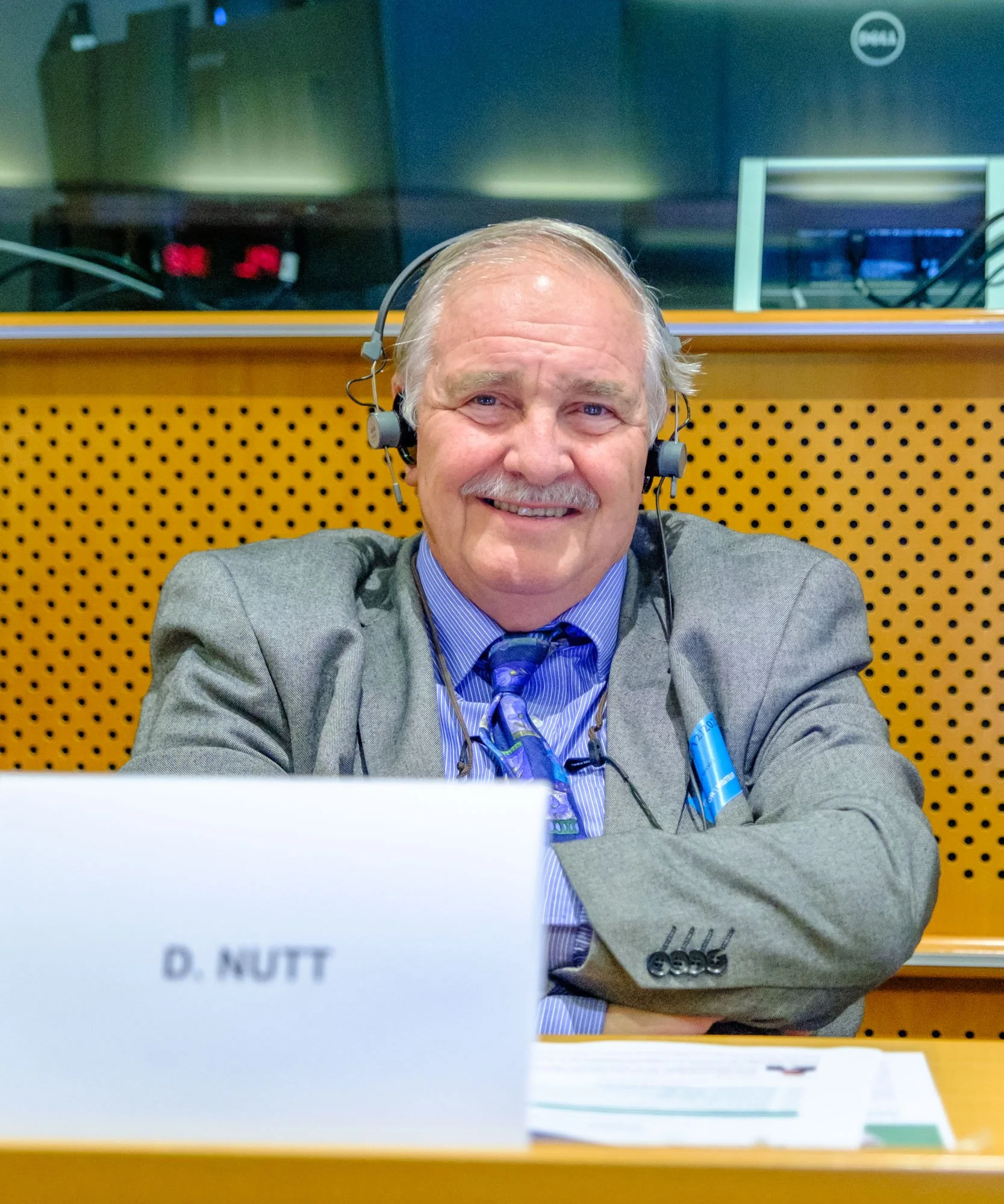
PAREA Event in the European Parliament
Psychedelic-assisted therapies in
the treatment of brain disorders
December 6th 2022
In the last few years, we have witnessed incredible progress in the area of psychedelic science. Now, we need to start moving the discussions about psychedelic-assisted therapies from the scientific conferences to much wider audiences, including policymakers.
On 6th December, we organized our first policy meeting in the European Parliament, looking at the basic ingredients of psychedelic novel treatments captured in the event’s title: “Psychedelic-assisted therapies in the treatment of brain disorders”.
Over 400 people registered for online and in-person attendance, including many EU and government officials. This is a clear sign that Europeans start looking for evidence-based education on psychedelic medicines.
To further shape the discussions on the responsible and safe roll-out of those treatments in the future, at the event, PAREA launched “An appeal to the European Union institutions and Member States”.
APPEAL TO THE EUROPEAN UNION
INSTITUTIONS AND MEMBER STATES
Psychedelic-Assisted Therapies in Europe
Mental healthcare is in crisis, and we don’t have the tools to truly help millions of Europeans in need. In the EU, a shocking number of over 100 million people are affected by mental health conditions, including alcohol use disorder. By and large, no new pharmaceutical treatments have emerged out of the pharmaceutical industry. We urgently need more innovation in these areas and psychedelic-assisted therapies (PATs) are emerging as a potent new class of treatments for mental, neurological and substance use disorders, as indicated by the rapidly growing, rigorous, and compelling body of research. In conjunction with proper psychosocial support, they hold the potential to provide safe, rapid acting, and robust clinical improvements with durable effects.
While no treatment is without risks, as a rule psychedelic compounds are non-toxic and non-habit forming, and research shows that PAT is physiologically and psychologically safe when delivered in controlled and supportive settings. Unlike current treatments that mostly address symptoms, psychedelic therapies help to confront the root causes of mental health problems or addictions. In doing so, they demonstrate a unique ability to restore a sense of purpose and connection. This, coupled with increased neuroplasticity, provides a deep foundation for those affected by mental illnesses to embark on a healing process. A crucial aspect of PAT is that improvements are often seen across the board: e.g., someone treated for PTSD may also drink less, have a healthier relationship with food, and feel less depressed.
The US Administration expects that psychedelic therapies with MDMA and psilocybin will be approved by FDA in 2024/2025. Soon after, the EU may follow, and millions of Europeans may be eligible to undergo PAT. This is an unparalleled opportunity which also calls for bold but thoughtful measures. We need to develop the infrastructure for the highest quality safe, affordable, and equitable access to PATs so that they can benefit the greatest number of people. This will include establishing good standards of practice, training of specialised therapists, credentialing and licencing, safe and ethical use monitoring (including setting up safety and ethical violation reporting systems to hold session facilitators accountable), evidence-based protocols to support people with challenging experiences, engagement of communities and peer support networks, and developing ethical guidelines and data standards. These models will benefit from practices already developed by experienced professional boards and will be further informed by a critical assessment of the pertinent peer-reviewed evidence.
Importantly, regulators are not equipped to evaluate the combination of a drug and therapy – traditionally they have been assessing the safety and efficacy of medications alone. Therefore, a close collaboration with the regulatory agencies is needed to overcome this barrier.
To address these opportunities and challenges proactively and in a timely manner, the Biden administration is establishing an inter-agency Federal task force. We urgently need to formulate a similar initiative in Europe to address numerous policy and regulatory considerations related to the future roll-out of psychedelic treatments. This could take the form of an EU-led Joint-Action, EU4Health project, EMA pilot, a horizon-scanning activity as part of the Oslo Medicine Initiative or be part of the HTA Regulation and its work to identify emerging health technologies. Indeed, the EU institutions and WHO Europe is perfectly placed to develop and lead such efforts and the chances of succeeding will depend heavily on proactive measures from the EU Institutions and Member States in advance of potential EMA approval of PATs.
A broad range of stakeholders needs to be strongly involved from the outset of the process. This collective effort will help to lay strong and safe foundations for the rollout of the PATs by establishing European guidelines that the EU Member States could choose to follow as they put in place frameworks and structures to accommodate the medical use of psychedelics.
Such central coordination would create an effective and efficient mechanism to advance the field, as opposed to having individual EU countries setting up their own work groups, or literature reviews exploring the efficacy and regulation of psychedelic novel therapies. This collaboration could also work on developing independent economic analyses to determine healthcare and broader social cost savings to inform HTA bodies and payers.
Importantly, given the foreseeable bottleneck of qualified, trained providers based on a likely high demand, PAREA believes that a phased roll out will need to be considered, balancing a need for widespread access with safety, monitoring and supervision.
Science is revealing that psychedelic substances can be powerful tools with considerable potential for alleviating human suffering. Though studies show that psychedelics are mostly safe and well-tolerated when used in appropriate settings, these medicines do nevertheless come with a potential for serious risks, as their safety and efficacy are dependent upon their integration within a therapeutic framework, as well as thorough preparation, support and integration and aftercare in specialised healthcare settings. Through cooperative and EU-led stakeholder engagement, a short window of opportunity opens for the creation of a therapeutic framework that can facilitate safe, ethical, accessible and equitable access to psychedelic-assisted therapies.
We must act now – we owe it to more than half of EU citizens affected by brain disorders who are often in desperate need for better treatments.





